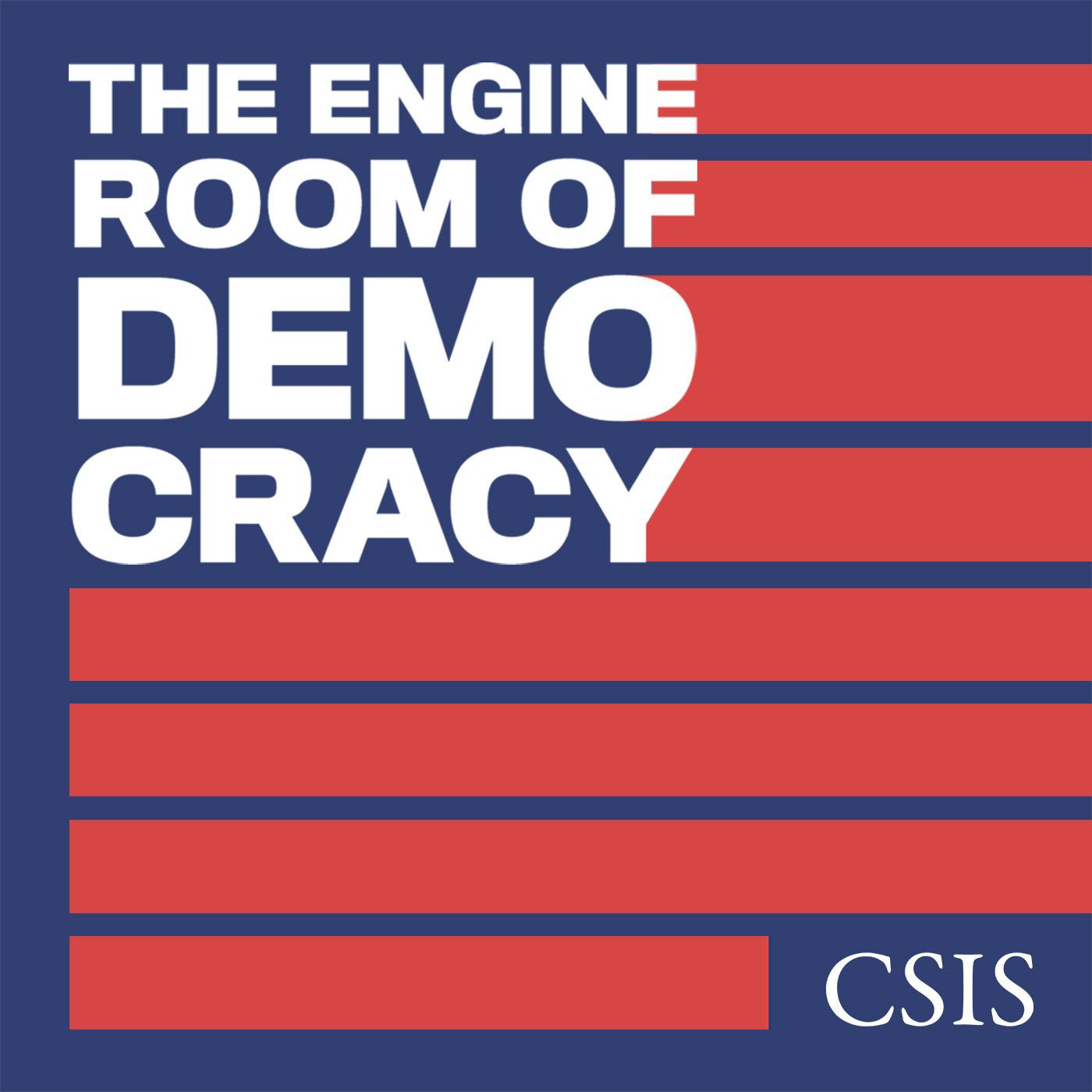Episodes
In this session, Dana Chipman, former judge advocate of the U.S. Army, discusses the role of the Judicial Center and how America supports and nurtures a professional judiciary.
Published 10/14/20
Published 10/14/20
Gene Dodaro is the comptroller general of the United States government and head of the Government Accountability Office (GAO). Established by Congress as a watchdog, the GAO is the one organization that forces truthfulness and accountability across the federal government. In this session, Dodaro discusses the critical role of independent oversight as a foundation for rule of law.
Published 10/07/20
Sean O’Keefe served in senior positions in both Congress and the executive branch. He has a unique perspective on how these two branches of government work together for a greater common good. Host Dr. John Hamre and O’Keefe discuss the tension between these two branches and the imperative for collaboration.
Published 09/30/20
John Kirby was a chief spokesman for both the Department of Defense and the Department of State. In this session, host John Hamre and Kirby discuss the importance of public communications as a foundation for credibility of government action, explaining how public communications reinforces rule of law.
Published 09/23/20
General Vincent Brooks is a pathbreaking Army officer. First in his class at West Point, Brooks rose to become the senior commander of American and allied forces in Korea. The commander of United States Forces Korea also has an important diplomatic role, serving as the head of UN forces in Korea and the senior political-military spokesman in Korea. In this session, Brooks and host John Hamre take us into the operational and legal issues of leading an alliance. They talk through how Brooks had...
Published 09/16/20
Elizabeth Rindskopf-Parker is a unique lawyer. She has served as an educator, a national security lawyer working for both the CIA and the National Security Agency, and was the head of the California Bar Association. In this session, Rindskopf-Parker and host John Hamre delve into the American judiciary. They discuss how it retains legitimacy when courts are constantly dealing with conflict—picking winners and losers.
Published 09/09/20
Dr. Richard Meserve is a unique individual—a lawyer, a research physicist, former chairman of the Nuclear Regulatory Agency. In this episode, he explains the unique role that independent agencies play in the governance landscape of America. Independent agencies regulate the daily life of most Americans, yet most Americans don't know the critical role they play. Meserve takes us into the world of independent agencies and how they operate to protect democratic principles in the most technical...
Published 09/02/20
John Bellinger served as the senior lawyer in both the Department of State and the National Security Council. In this session, host John Hamre and Bellinger discuss the way rule of law is embedded in diplomacy and foreign policy. Bellinger articulates the role that international law and international institutions play in advancing American interests.
Published 08/26/20
Major General John Ewers is a marine who rose to become the senior lawyer for the Marine Corps. In this episode, host John Hamre and Ewers discuss how the rule of law is observed on the battlefield. As the senior legal officer in Iraq, Ewers shares with listeners the challenges of conducting lawful warfare in the most demanding and unpredictable environment.
Published 08/19/20
Glenn Gerstell recently stepped down as the general counsel for the National Security Agency, America’s premier technical intelligence agency. In this episode, Gerstell discusses how the United States undertakes sophisticated intelligence collection while staying consistent with a constitutional obligation to protect the privacy of American citizens.
Published 08/12/20
Michelle Howard is a pioneer. She graduated from the U.S. Naval Academy and rose to become a four-star admiral and vice chief of naval operations. In one of her professional assignments, she led Combined Task Force 151, which was organized to confront and eliminate pirates operating in the Gulf of Aden. Michelle discusses how U.S. military forces operate in police actions under lawful international authorization.
Published 08/05/20
Jim Dubik is a retired senior officer from the United States Army. A retired three-star officer, in his last job Jim worked with Iraqi military forces to explain how civilian control works in real life. In this session, Jim discusses the critical question of how democracies control military establishments. By definition, military organizations are authoritarian rule-based organizations that operate in secret and have guns. This session examines how democracies control military establishments...
Published 07/29/20
Host John Hamre interviews Stephen Preston, a senior lawyer in Washington. In government service, Stephen was the head lawyer for the Central Intelligence Agency and the Department of Defense. In this episode, Stephen discusses how democracies authorize the use of lethal force and how democracies control military and covert activities once initiated. This is a special challenge for democracies where the use of force must be consistent with democratic principles. Stephen offers a powerful...
Published 07/22/20
Jamie Gorelick has held senior positions in government, as general counsel in the Department of Defense and as deputy attorney general. In this session, she discusses the complex and dynamic relationship that binds police, prosecutors, and courts. Democracy depends on clear rules and institutions that implement the rules. Each institution confronts controversy and challenges. Jamie offers an intriguing insight into this foundational function in American democracy.
Published 07/15/20
Rule OF Law vs. Rule BY Law: How the U.S. Constitution is Designed to Protect the American Citizenry
In this first episode, host John J. Hamre speaks with Suzanne Spaulding, director of the Defending Democratic Institutions project at CSIS. Suzanne is a lawyer, and had served as chief clerk of the House Permanent Select Committee on Intelligence, and later as undersecretary in the Department of Homeland Security. Their conversation examines how established institutions and procedures keep government agencies accountable to its citizens. This process is especially important for intelligence...
Published 07/07/20


